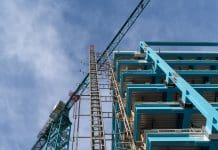A new survey from the NBS has shown specifications remain essential now and in the future, and are evolving with the digital landscape
The current role and future of specifications has been outlined as part of a new survey from NBS. With more than 500 responses, the NBS found specifications remain essential but are seeing evolution due to advances in today’s digital landscape.
Specifications are created for a host of reasons, but most commonly to set out expectations and performance criteria for a project.
Richard Waterhouse, Chief Executive of NBS said: “When we last ran this survey in 2013, we knew that the industry was in a period of transition.
“Running the survey again after three years, we’ve seen that specifications are evolving along with the industry, towards more collaborative and digital ways of working.”
Lifetime specification
Interestingly, the survey revealed that over 70 per cent of those surveyed wrote project specifications as part of their day-to-day working life. The survey also revealed an increase in the percentage of people starting specifications earlier.
“As an industry we’re slowly moving towards a lifetime specification and we’ve started to see small, encouraging increases in parties co-owning and co-creating their specifications – but there’s still a long way to go,” continued Waterhouse.
The survey also revealed evidence that collaboration is increasing. Less than 11 per cent revealed they were sharing draft specifications outside their own firm, but this figure was an increase of three per cent when compared to 2013.
Challenges
However, challenges are still being seen, with 94 per cent reporting difficulties producing or using specifications. This was an increase from 87 per cent in 2013. Furthermore, six out of 10 specifiers admitted to rushing the process.
Adrian Malleson, Head of Research, Analysis and Forecasting at NBS, said: “Rushing specifications is a huge risk when you consider the multiple roles of a specification – a risk that could lead to costly mistakes.
“Time and time again, we’re also seeing that substituted specified materials and inaccurate or incomplete technical data are two of the most common problems that specifiers continue to face when it comes to producing or using specifications.”
He continued: “At NBS, we offer a number of tools to help specifiers access standards, manufacturers’ product data and other information. Ensuring accurate and up-to-date technical data is becoming increasingly important as the industry continues to adopt BIM – this is something that we are doing here at NBS and will continue to develop and improve.”














